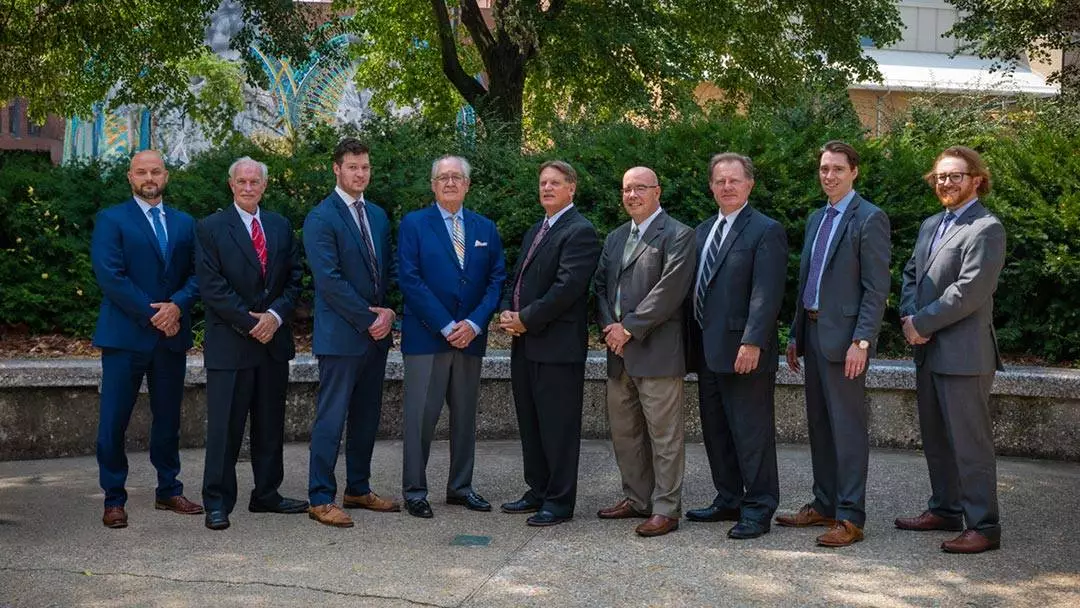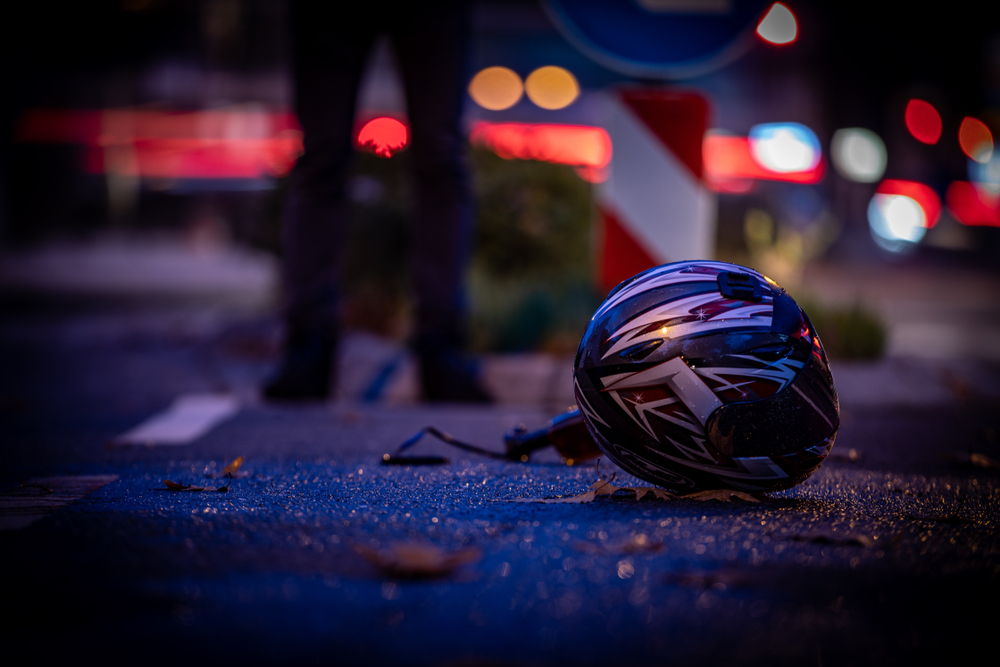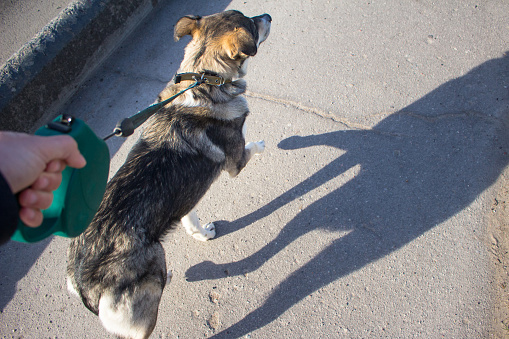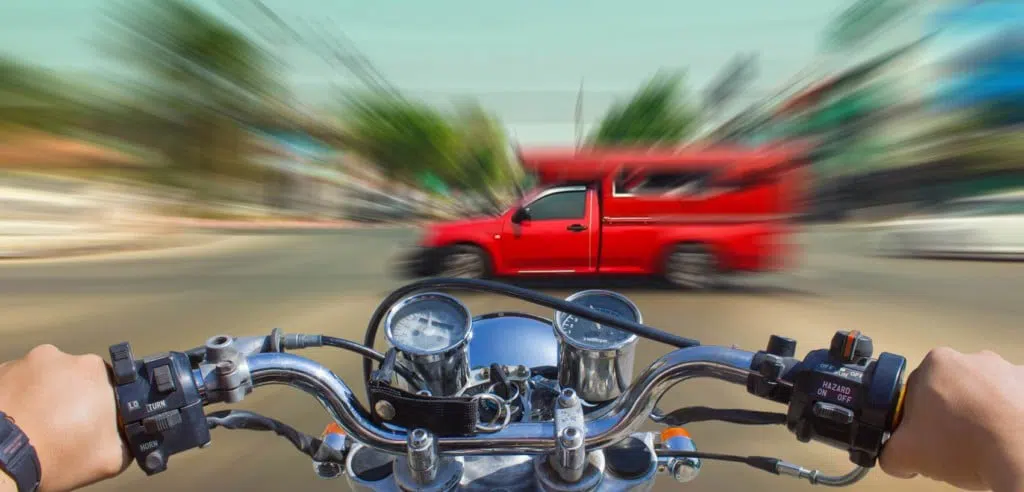It takes just one pothole, loose gravel patch, or unsecured piece of construction equipment to send even the most experienced motorcyclist into a dangerous slide. Unlike car drivers, motorcyclists don’t have the benefit of a steel frame for protection, so when something goes wrong on the road, the consequences can be severe.
Motorcycle crashes caused by road debris or unsafe construction zones raise complicated legal questions. Who’s responsible for the hazard? Can a government agency be held liable? Was the construction site properly marked? The answers can affect everything from whether medical expenses are covered to how much compensation is available — or whether compensation is available at all.
This guide outlines the most important steps to take after a debris- or construction-related motorcycle crash in Ohio, including how to protect your health, preserve critical evidence, and understand your legal options.
6 Steps to Take After a Motorcycle Crash Caused by Road Debris or Construction
1. Seek medical attention immediately, even if injuries aren’t obvious
Motorcycle crashes often result in serious injuries, and not all of them show symptoms right away. But from a legal standpoint, it’s not enough to simply say you were hurt. Medical documentation, dated as close to the crash as possible, helps establish causation and damages. These are two key pillars in any personal injury claim.
Delays in treatment are frequently used by insurers or defendants to argue that injuries weren’t caused by the crash. So even though there’s no visible bleeding or symptoms seem minor at first, it’s still important to get evaluated by a doctor as soon as possible. What feels like soreness or dizziness could be signs of more serious internal injuries, and prompt documentation helps link those injuries directly to the incident.
2. Document the scene before conditions change
Given that construction debris, misplaced traffic cones, or loose materials can vanish within hours, try to gather the following as soon as possible:
- Wide and close-up photos of the debris or road hazard..
- Photos of your motorcycle, protective gear, and any visible injuries
- The layout of the construction zone, especially if signage or barriers were missing or misleading.
- Any equipment, vehicles, or company logos visible at the scene.
- Contact information for witnesses who saw the crash or the road hazard.
Preserving evidence quickly helps establish what actually caused the crash and whether proper safety protocols were followed.
3. File a police report and clearly describe the hazard
In Ohio, reporting a crash creates an official account that may become central to your case. When speaking with law enforcement, be as specific as possible about what led to the crash:
- Was there a pothole or trench left open without signage?
- Did your tire strike loose gravel or asphalt that had spilled beyond the construction zone?
- Was a construction vehicle parked unsafely or obstructing the roadway?
Avoid making assumptions or accepting blame in the moment. Officers may not include all the details you provide, but your statements can influence how fault is initially assigned and whether a third party is flagged as potentially responsible.
4. Report the hazard to the appropriate authority
Beyond the police, you’ll want to report the road debris or unsafe construction to the responsible public or private entity. In Ohio, this may include:
- The Ohio Department of Transportation (ODOT) for state highways
- A city or county public works department for local roads
- A private contractor or utility company if the crash occurred near an active worksite
Reporting the hazard creates a paper trail. In some cases, it also triggers internal investigations or work orders that may help establish liability. If the responsible party failed to follow proper safety procedures (such as placing warning signs or securing equipment), they may be held accountable for resulting injuries.
Make sure to keep copies of any complaints or correspondence, and note the date and method of reporting (online form, phone call, etc.).
5. Don’t assume your insurance will cover everything
Even if you carry comprehensive motorcycle insurance, coverage may not be straightforward. While property damage claims may be approved quickly, injury claims involving a third party can lead to disputes over fault.
If a public agency or contractor is responsible, filing an insurance claim may require going through their administrative process first. For example, ODOT has a formal procedure for pursuing damages caused by roadway defects, but the burden is on the injured party to prove negligence. And if a governmental entity is involved, special notice deadlines may apply.
6. Talk to an attorney before evidence disappears
Motorcycle crashes involving debris or construction are legally complex. Multiple parties may share liability, including government agencies, subcontractors, equipment providers, or third-party drivers who displaced debris. Proving fault may require expert review of site conditions, safety protocols, or maintenance records.
An experienced personal injury attorney can help:
- Investigate whether proper signage and barriers were in place.
- Subpoena construction records or dash cam footage if necessary.
- Determine whether sovereign immunity limits apply (in the case of public entities).
- Preserve evidence before it’s lost or destroyed.
- Protect your rights in communications with insurers.
The key is to reach out to a motorcycle accident lawyer as soon as possible. Not only can critical evidence vanish, but legal deadlines for filing claims against government entities in Ohio can be as short as 60 days. The sooner you begin the legal process, the greater the chance of building a strong case.
At Slater & Zurz, our Ohio motorcycle accident attorneys have the experience and resources to investigate complex liability cases, work with crash reconstruction experts, and pursue full compensation on your behalf. There’s no cost to speak with an attorney — and, more importantly, no fee unless we win your case.
Call us at 330-762-0700 today for a free consultation.
Written by Michael Schmeltzer
Michael, a partner at Slater & Zurz, represents clients in a broad range of complex cases, including catastrophic personal injury, construction accidents, trucking and motorcycle collisions, product liability, wrongful death, nursing home negligence, and medical and professional malpractice.






